31/8/2021
On COP26. The younger generations are thinking, “In my lifetime, I’m going to be the one who’s going to be beset with the worst of this.” This generation know from the IPCC reports, and all the successful science communication that has come out, that the next 10 years is the most important. So they see themselves coming of age, coming onto the political and professional scene of their lives, coming into adulthood, when the most important effects can happen, the most responsibility the most urgency is on them. This new generation know thsty they will not be flying as much. They will need to refuse things that previous generations have taken for granted, like plastic and single-use containers. They will neec to successfully change how infrastructure works, how their transportation works, how they build their families, how they build their homes, how they live on this planet and walk on this Earth. Their lifestyles won’t accept what previous generations has accepted as normal.
We are putting perhaps too much stress on the next generation and leaving them to worry about what problems they are going to have to sort out which were not of their making.
Photo PIxabay
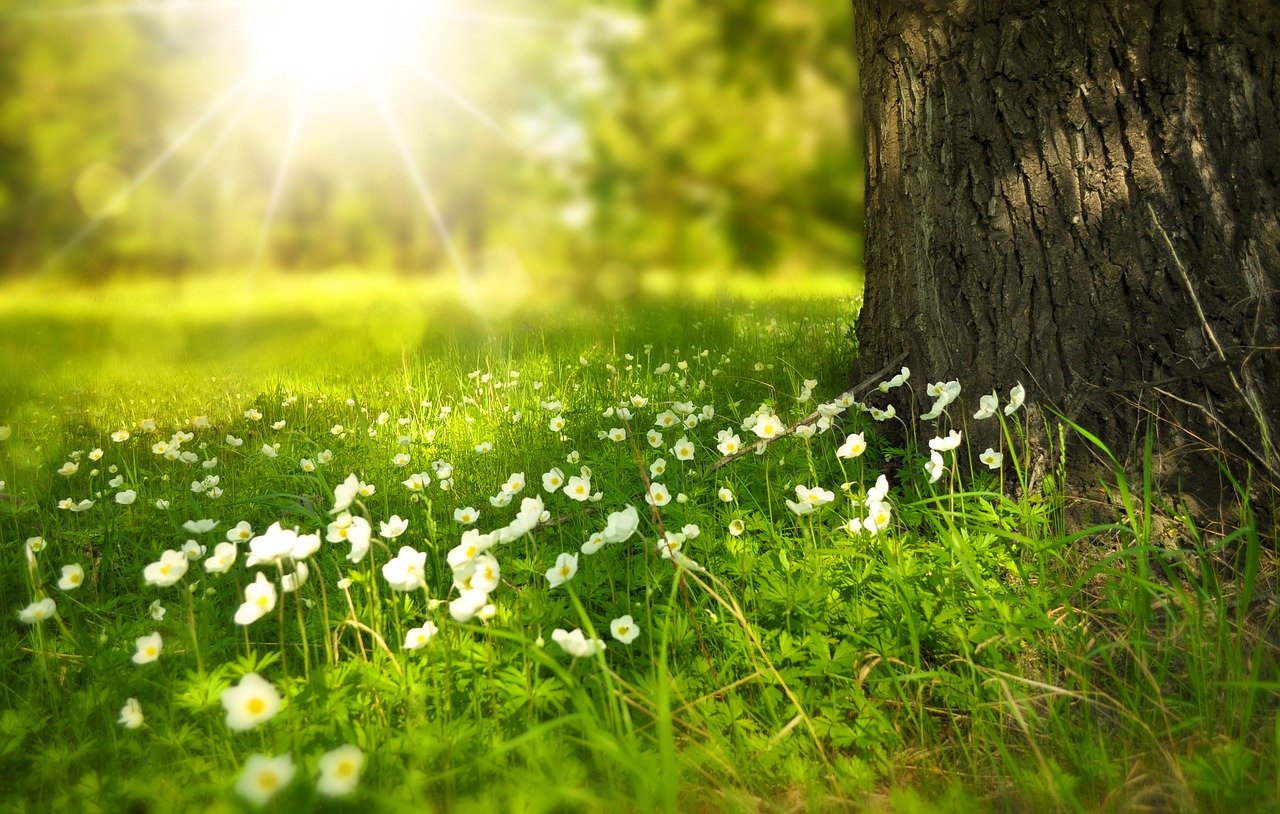
28/8/2021
They may be more energy efficient, but are the new LED street lights now so common also responsible for the decline in the moth population? Researchers say in their study, published in Science Advances,there is the strongest evidence yet that light pollution can have severe impacts on local moth populations, with consequences for the birds and other wildlife that rely on these caterpillars for food. Using a matched-pairs design, they found that street lighting strongly reduced moth caterpillar abundance compared with unlit sites (47% reduction in hedgerows and 33% reduction in grass margins) and affected caterpillar development. A separate experiment in habitats with no history of lighting revealed that Artificial Light at Night disrupted the feeding behavior of nocturnal caterpillars. Negative impacts were more pronounced under white light-emitting diode (LED) street lights compared to conventional yellow sodium lamps.
https://advances.sciencemag.org/content/7/35/eabi8322
Photo PIxabay
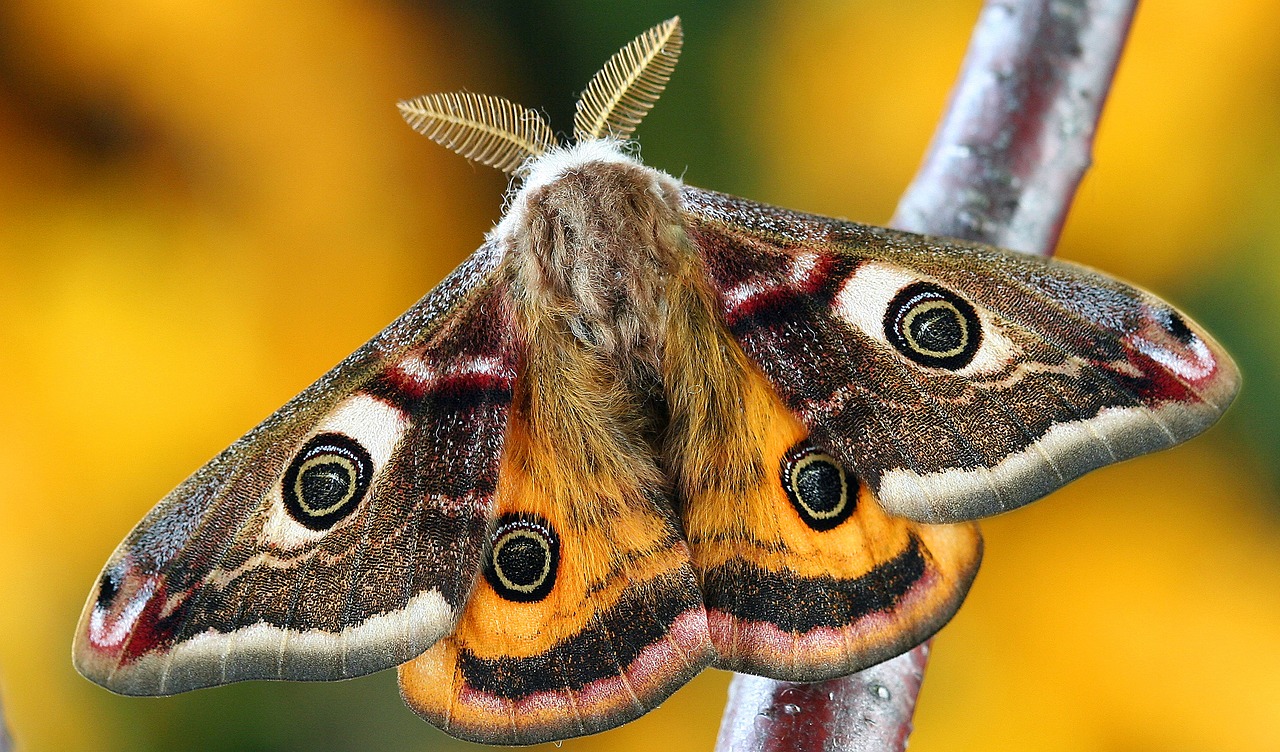
27/8/2021
Human-caused methane emissions could be reduced by as much as 45 per cent within the decade. This would avert nearly 0.3°C of global warming by 2045, helping to limit global temperature rise to 1.5˚C and putting the planet on track to achieve the Paris Agreement targets. So what do we need to do? We need to leverage in new technology, shifting towards plant-rich diets and embracing alternative sources of protein. Farmers can provide animals with more nutritious feed so that they are larger, healthier and more productive, effectively producing more with less. Staple crops like paddy rice, experts recommend alternate wetting and drying approaches that could halve emissions. Rather than allowing the continuous flooding of fields, paddies could be irrigated and drained two to three times throughout the growing season, limiting methane production without impacting yield.
Photo Rosamund Russell
26/8/2021
Everyone thought that because no one in the workld went to work because of the global lockdowns that emissions of gt=reen house gases would go down. For weeks no planes in the sky, the roads were devoid of cars, but that was onlty in some of Europe and gave the false idea of a reduction in emissions. Sure this was true of a few countries but not the world as a whole and power consumption was the sme with people working from home rather than being at work. I know in my case my wife didn't travel by train, nor did a lot of people but the trains still ran. The emissions from burning fossil fuels dropping by around 7%. But the reduction was too small to have any significant impact on build up of carbon dioxide in the air, according to a global annual review.
Photo Rosamund Russell
25/8/2021
Mr. Trash Wheel is a semi-autonomous trash interceptor that is placed at the end of a river, stream or other outfall.Far too lazy to chase trash around the ocean, Mr. Trash Wheel stays put and waits for the waste to flow to him. Sustainably powered and built to withstand the biggest storms, Mr. Trash Wheel uses a unique blend of solar and hydro power to pull hundreds of tons of trash out of the water each year.
https://www.mrtrashwheel.com/press/
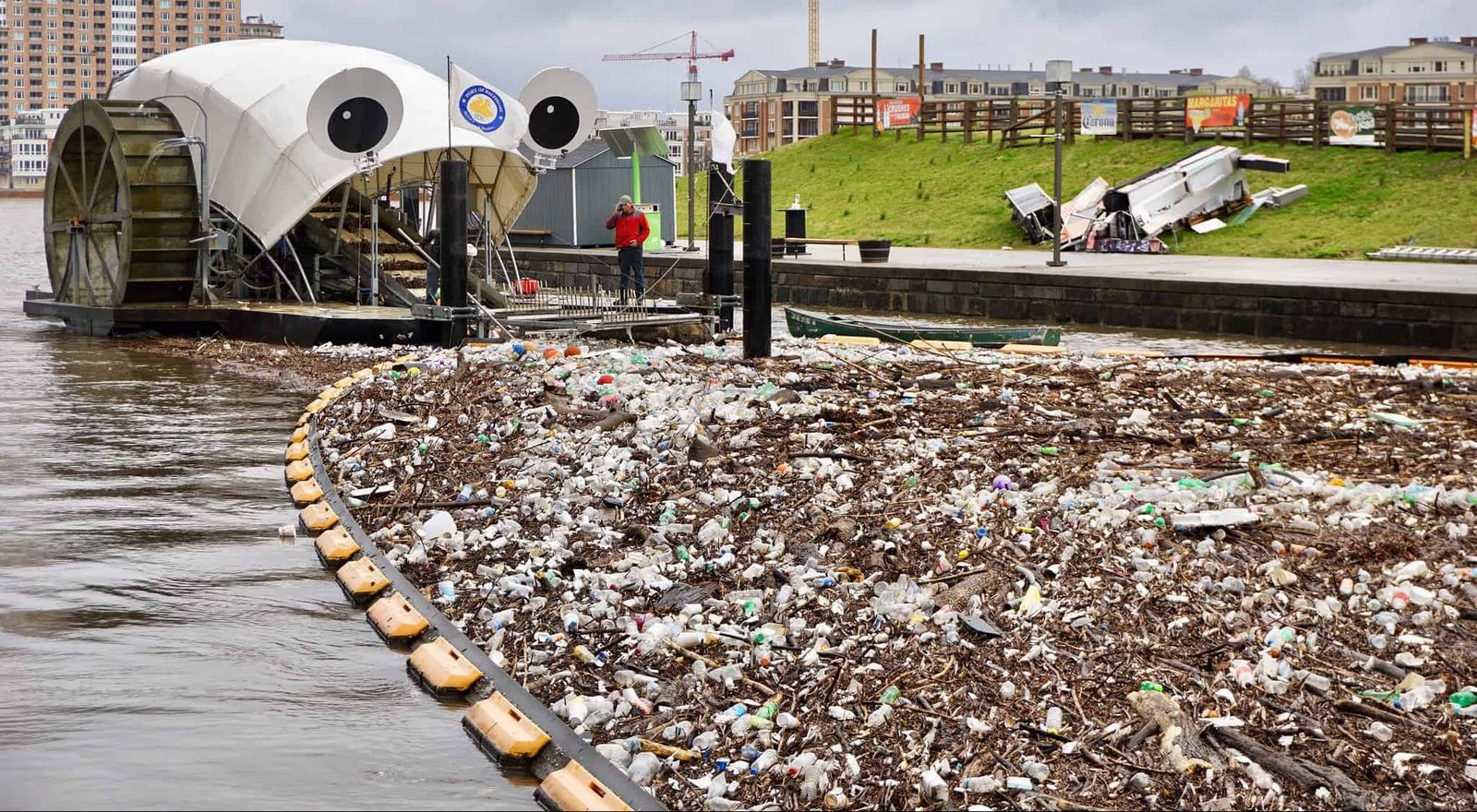
24/8/2021
Scientists from Germany, Belgium, the Netherlands,
Switzerland, France, the US and the UK, collaborated to assess to what extent
human-induced climate change altered the likelihood and intensity of the heavy
rainfall causing the severe flooding. The observed rainfall amounts in
the Ahr/Erft and the Belgian part of the Meuse catchment broke historically
observed rainfall records by large margins. They found that in the
current climate, for a given location within this larger region, can on average
expect one such event every 400 years. Climate change increased the
intensity of the maximum 1-day rainfall event in the summer season in this
large region by about 3 – 19% compared to a global climate 1.2 °C cooler than
today. All available evidence taken together, including physical
understanding, observations over a larger region and different regional climate
models give high confidence that human-induced climate change has increased the
likelihood and intensity of such an event to occur and these changes will
continue in a rapidly warming climate.
Credit:https://www.worldweatherattribution.org/heavy-rainfall-which-led-to-severe-flooding-in-western-europe-made-more-likely-by-climate-change/
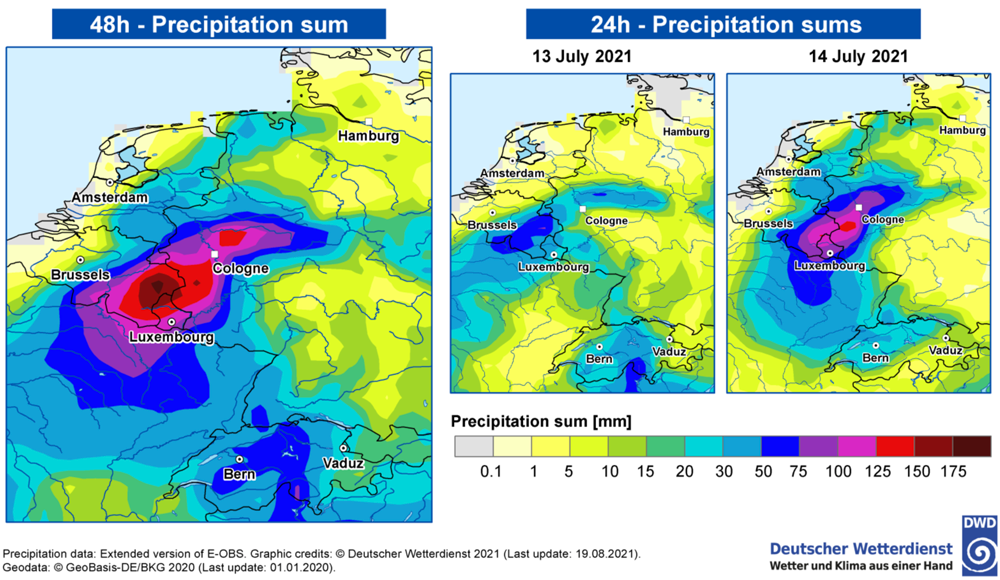
23/8/2021
SSAB has now produced the world’s first fossil-free steel and delivered it to a customer. The trial delivery is an important step on the way to a completely fossil-free value chain for iron- and steelmaking and a milestone in the HYBRIT partnership between SSAB, LKAB and Vattenfall. “The first fossil-free steel in the world is not only a breakthrough for SSAB, it represents proof that it’s possible to make the transition and significantly reduce the global carbon footprint of the steel industry. We hope that this will inspire others to also want to speed up the green transition,” says Martin Lindqvist, President and CEO of SSAB.“Industry and especially the steel industry create large emissions but are also an important part of the solution. To drive the transition and become the world's first fossil-free welfare state, collaboration between business, universities and the public sector is crucial. The work done by SSAB, LKAB and Vattenfall within the framework of HYBRIT drives the development of the entire industry and is an international model”, says Minister of Trade and Industry of Sweden Ibrahim Baylan.
Credit: https://www.ssab.com/news/2021/08/the-worlds-first-fossilfree-steel-ready-for-delivery
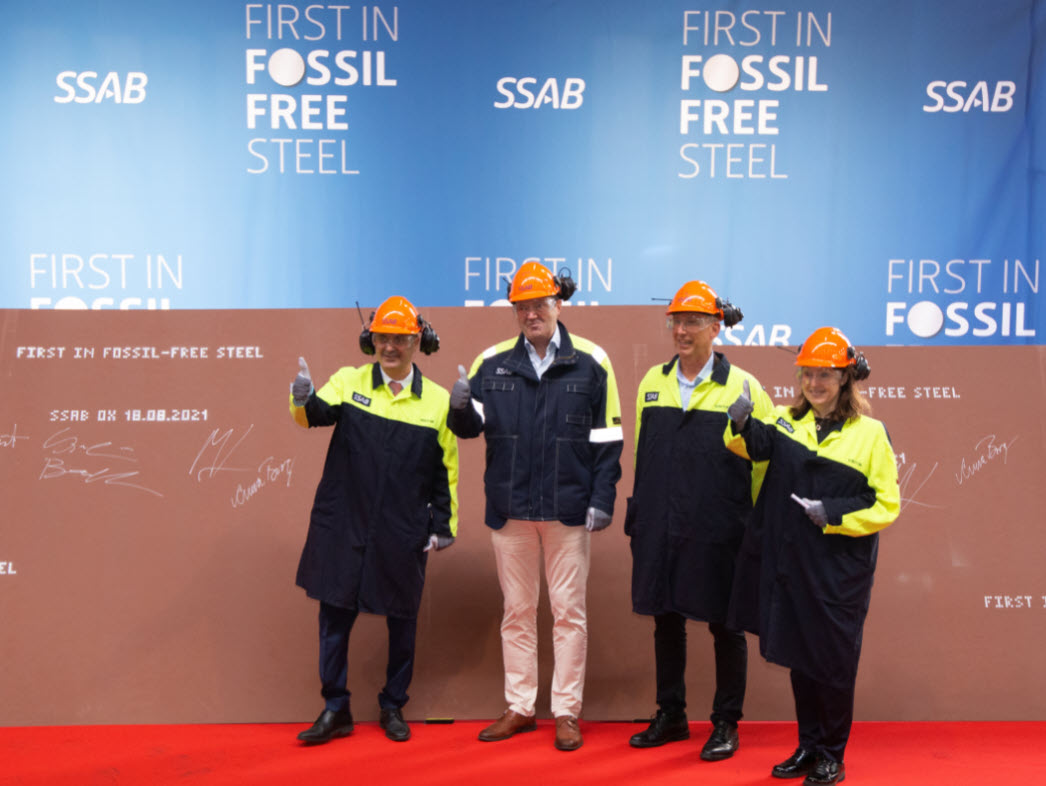
22/8/2021
Switching Gears: Achieving Climate Smart Fisheries
,
There are three main ways that fisheries emit greenhouse gases into the atmosphere which, if untouched, would otherwise be locked under the sea as blue carbon.
1) Damaging marine environments with nets destoying the sea grass meadows.
2) Destablising fish stocks by fising beyond sustainable levels.
3) Old fishing vessels polluting the air with high levels of Carbon Dioxide.
The first post-Brexit UK fish stock audit, published at the start of 2021, showed that only three of the UK’s top ten fish populations are fished at or below maximum sustainable yield (the highest possible annual catch that can be sustained over time). Urgent action needs to be taken.
We need action to modernise the the fishing fleet and to control the levels of fishing, how they are done and repairing the damage caused.
https://www.mcsuk.org/news/getting-climate-smart-our-new-fishery-report/
Credit: Pact Media
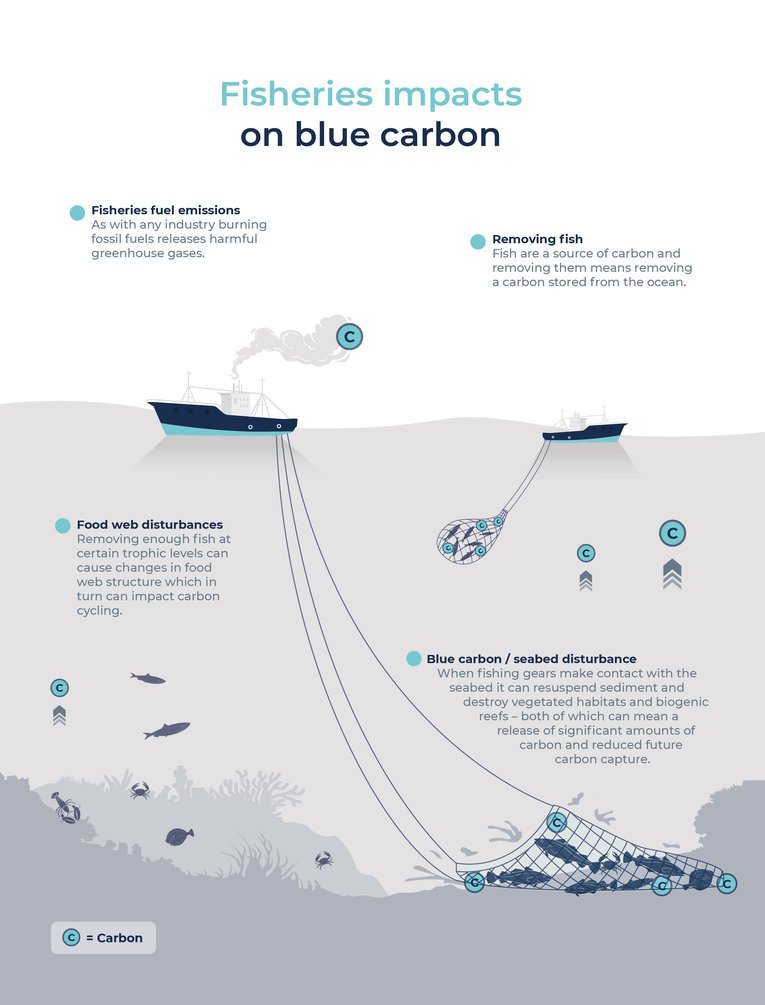
21/8/2021
An Arctic research station, on the Greenland
ice sheet, which is over 10,500ft above sea level had above-freezing
temperatures for over nine hours and the first recorded rain fell. This is the
fourth time in recorded history that above temperatures were recorded, and the
last three of these were in the last decade. Records began in 1950 when the
station was established. The higher temperatures were caused by a region of low
pressure over Baffin Island and a region of high air pressure southeast of
Greenland that pushed warm air across the region, which fell as rain.
This caused a much larger amount of ice to melt than usual in August. With just
barren rock underneath the rain water runs straight off into the sea, taking
with it more ice. This loss of ice will help the acceleration of the sea level
rising.
Photo Waleed Abdalati, GSFC
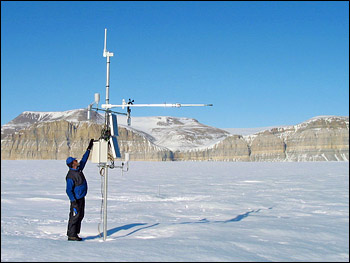
20/8/2021
Wildfires around the world are massively adding to the amount of Carbon Dioxide and other pollution in the air. https://atmosphere.copernicus.eu/ displays the actual amount predicts trends in the amounts of Carbon Dioxide and other gases in the atmosphere. It probably comes as little surprise that the amounts of Carbon Dioxide in the air has increased due to the wildfires raging around the northern hemisphere at present. in recent years there have been more wildfires but this year has seen many countries with wildfires at the same time burning huge areas of land. Just to put one figure on this it is estimated that the Siberian Wildfires have released an additional 953 Tons of Carbon Dioxide into the air.
Photo https://atmosphere.copernicus.eu/charts/cams/carbon-dioxide-forecasts?facets=undefined&time=2021081900,24,2021082000&projection=classical_global&layer_name=composition_co2_totalcolumn
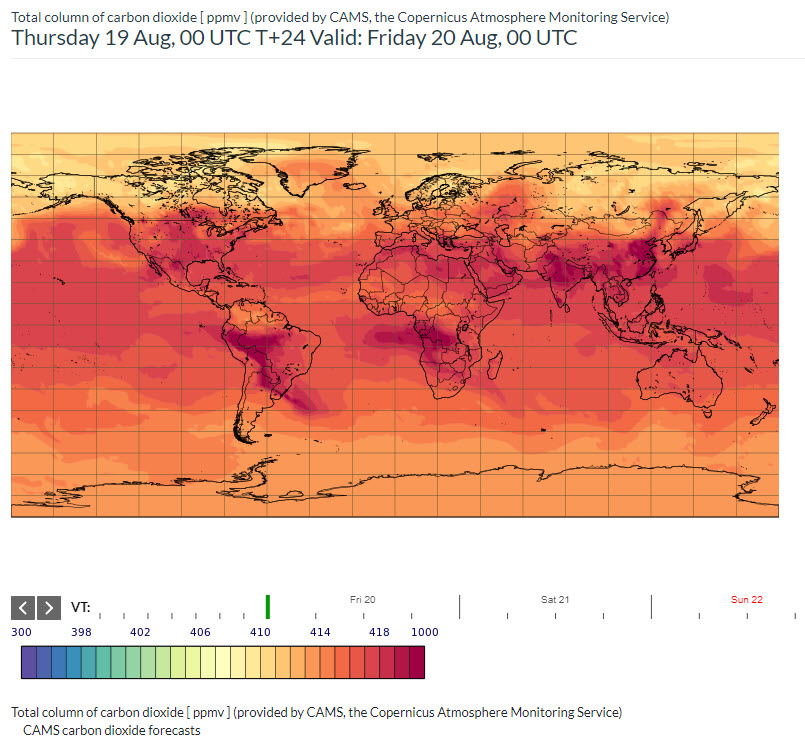
18/8/2021
Warmer temperatures seem to be making animals grow smaller.
We have seen this in birds and now we are seeing this in fish. Water means
smaller and less mobile fish. This means the catches will get smaller because
even if they catch the same number of fish the yield in kg will be less. Of
course the result will be to over fish and this will reduce stock even further.
Over the last 150 million years, fish have had to adjust to changing
temperatures, but only at rates of around 0.8°C per thousand years. Since 1981,
according to the US National Oceanic and Atmospheric Administration,
the seas have been warming at 0.18°C per decade. Animals confronted with
higher temperatures evolved to be smaller. There is another problem – at higher
temperatures there is less oxygen dissolved in the sea water making it harder
for the larger fish to breathe.
Photo StormyDog by CC Licence
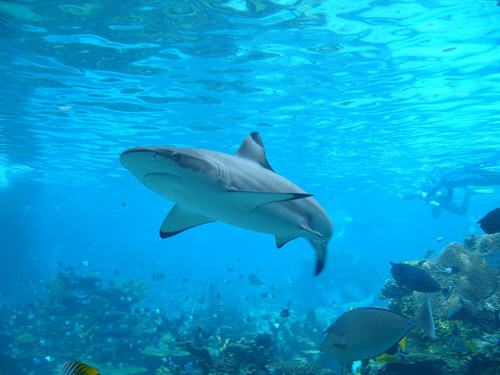
17/8/2021
Virtually every council in the UK – perhaps even the world
wants net zero. Some set up policies to cut this and cut that. But as they make
their plans to cut emissions, they also put in place plans to increase
emissions, by adding to road building – creates lots of emissions - to allow
more vehicles ( could be electric) build new bridges and tunnels – made of
concrete a high carbon dioxide emitter.
To meet this net zero but also continue with construction
then the councils are going to need to be very carbon minus in some areas to
offset the building and construction. A new airport might be required bringing
in carbon dioxide producing planes – the offset could be huge. Making this
green or even net zero is a significant challenge.
For example, Tower Hamlets is committed to
achieving net zero carbon by 2025, but has also backed the construction of the
Silvertown Tunnel under the Thames.
"East London has suffered from a lack of river
crossings and the Silvertown Tunnel will offer the prospect of a solution to
the terrible air quality and congestion problems at Blackwall Tunnel," a
spokesperson for the council said.
Does the end justify the means? Will the amount of
Carbon Dioxide generated in the construction be offset by the savings later on –
or is there a better solution?
Photo Otisshola
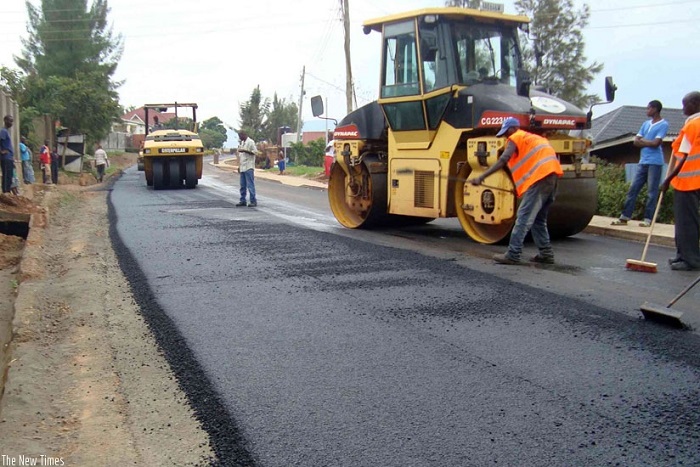
16/8/2021
The Stormont governed want to
bring in a legally binding bill to make Northern Ireland farms net zero by
2045. It establishes a legal framework including
five-year plans for emissions cuts.
It does not specify
the level of reductions required in various sectors like agriculture, transport
and energy but the farming sector fears it will be disproportionately affected.
Bill sponsor Clare
Bailey of the Green Party said there was nothing in it which "harms
farming". Except to make agriculture Net zero means a loss of sheep and
cattle farming and a subsequent loss of jobs. Without the cattle and sheep,
more meat will have to be imported driving up the cost of meat and increasing
the transportation – emissions cost. The Farmers Union commissioned a report
into the effect the bill's target would have on agriculture.
The report, carried
out by KPMG, projects that the target could lead to the loss of 13,000 jobs.
It also warns of a
huge cut to livestock numbers and the loss of billions of pounds in economic
output.
Photo Moe_ by CC Licence
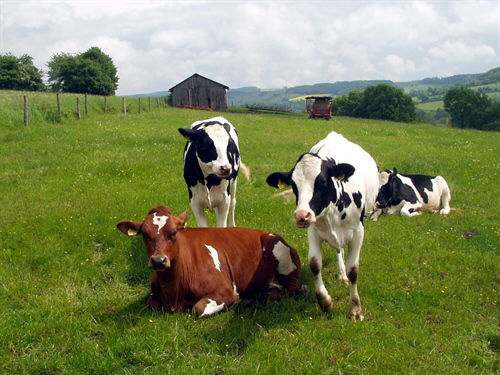
15/8/2021
One in five businesses don't really understand the term "net zero", and almost a third of SME's have yet to get advice or obtain information to help them develop a plan to reach net zero or even to improve their sustainability. Many online carbon footprint calculators are useless in that they ask the wrong questions - things that at not relevant to the business. Many companies are still trying to get over the pandemic and having the time or resources to change their business model - yet this is exactly the time to change.
When we buy food nowadays the amount of protein/ Carbohydrates and the Calories it gives you are on the label, but when users buy goods they have no idea how much energy is put into them and cost is largely unrelated to this.
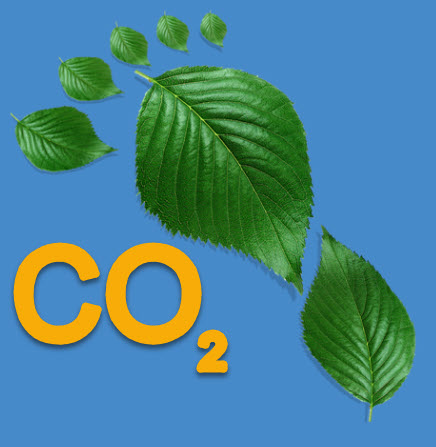
14/8/2021
We all knew it, but now it has been confirmed that July was the hottest month ever on the Earth since records began some 142 years ago. ( it wasn't in the UK) but weather and clmate are different and just because it was not record breaking in the UK, it was still one of the hottest. The previous records were set in 2016 and 2019 and 2020. There is a pattern here - July is normally hot but this was the hottest. This shows that the disruptibve path has started and the 1.5C rise is fast approaching. ( and so is the 2 -3 and 4C rise). All the 5 hottest years have been in the last 20 years.
Photo Philip M Russell
13/8/2021
Syracuse, in Sicily, has provisionally exceeded the previous European highest temperature with a record of 48.8°C. The record will need to be verified by the World Meteorological Organisation and this temperature wil then break the exiting record held in Athens of 48.0°C in 1977. There are worries that in the next few years the temperature record wiil again be broken and rise to over 50°C. Professor Peter Stott, the Met Office’s lead on climate attribution said: “Climate change is making heat-related extremes of weather more intense and when we think about those record-breaking temperature the chance of breaking temperature records – or coming close to breaking records – is greatly increased.
Photo Philip M Russell
12/8/2021
Twelve years ago, wealthy countries committed to provide $100 billion a year by 2020 for climate adaptation and mitigation in developing countries. Not only are they failing to deliver on that promise, 80% of the funds they are putting forward is in the form of loans or private finance, instead of grants. Developing countries urgently need those funds to be able to respond to the climate crisis but they cannot afford loans and paying the interest. Covid hasn't helped the money situation but this money disappeared before that ansd now many western countries are facing money problems themselves.
Photo Philip M Russell
11/8/2021
The UK tops the European market in buying clothes. So what has this to do with Climate change and global warming? It is interesting talking to many students about fashion and climate change. The students are all up fior doing things for climate change, but when we talk about clothing and buying the latest fashion and these designer shoes and the like - they are not able to put the two things together. Clothes cost a lot in plastic manufacture, and the energy to make them and transport them. Cutting down on your wardrobe can cut global warming.
Photo Philip M Russell
10/8/2021
Some countries like The Maldives, Antigua and Barbuda are looking to be the worst hit if sea levels rise by between 0.5 and 1 metre. These countries would all but disappear, because no matter what we do the seas will continue to rise. But for those who live in the West, the dangers of warming our planet are no longer something distant and impacting people in faraway places, they are here, and hopefully this may spur Western Nations along. Extreme heat in some places will become more frequent, and there will be an increase in extreme rainfall.
The world needs to get rid of coal burning.
Methane levels need to drop.
We all need to use clean energy production, wind, wave, tidal and solar.
Photo Ibrahim Asad, CC BY 3.0 <https://creativecommons.org/licenses/by/3.0>, via Wikimedia Commons
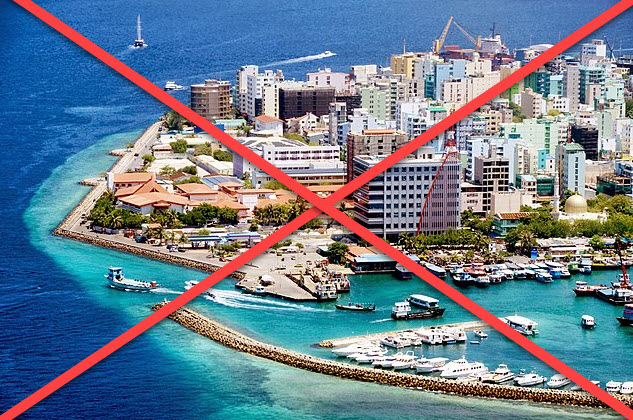
9/8/2021
The future changes to the Earth depends up on what we choose today, Human activities have caused our planets climate to warm at a rate faster than anything people have experienced in at least 2000 years. What does this mean - if we don't act today then it is going to be too late. Just three years ago, scientists were predicting the 1.5C rise, from pre-industrial levels, was likely to be reached between 2030-2052 but this has now been brought forward to 2021-2040, going above this level in 2041-2060. Global warming of 1.5C and 2C, the limits countries have committed to in order to avoid the most dangerous impacts of climate change, will be exceeded this century unless deep reductions in carbon dioxide (CO2) and other greenhouse gase missions occur in coming decades.
If you want to really worry look at the forcast for a 2, 2 and 4C rise with the interactive atlas https://interactive-atlas.ipcc.ch/
Photo Earth from Space
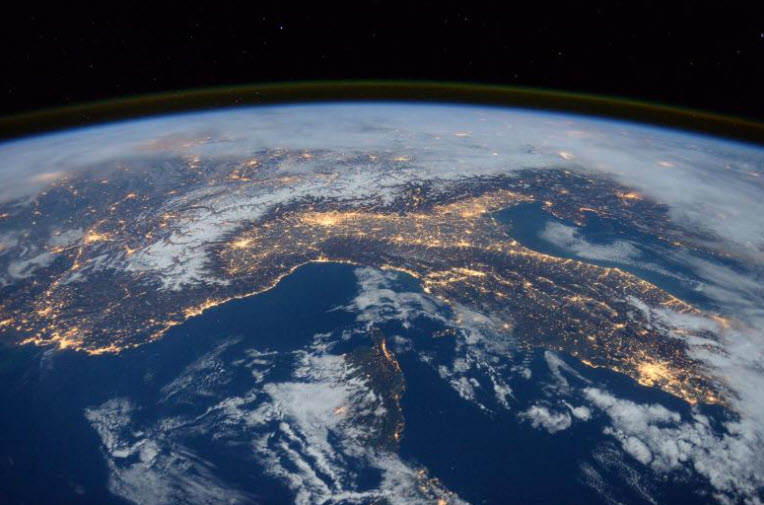
7/8/2021
One of the worlds tipping points may have just about been reached. The Gulf Stream or North Atlantic Drift is part of a cyclic pattern of ocean currents (meridional overturning circulation) which moves water around the Earth, warming up the cold bits and cooling down the warm bits. Oceanographers have been measuring the Atlantic Meridional Overturning Circulation (AMOC) continuously since 2004. The measurements have shown that the AMOC varies from year to year, and it is likely that these variations have an impact on the weather in the UK. However it is too early to say for sure whether there are any long term trends,. The AMOC is driven by dense, salty seawater sinking into the Arctic ocean, but the melting of freshwater from Greenland’s ice sheet is slowing the process down earlier than climate models suggested and this could slow down or stop the AMOC and then Britain which is warmer than it should be because of this current might not be.
https://www.metoffice.gov.uk/weather/learn-about/weather/oceans/amoc
Photo https://www.metoffice.gov.uk/weather/learn-about/weather/oceans/amoc
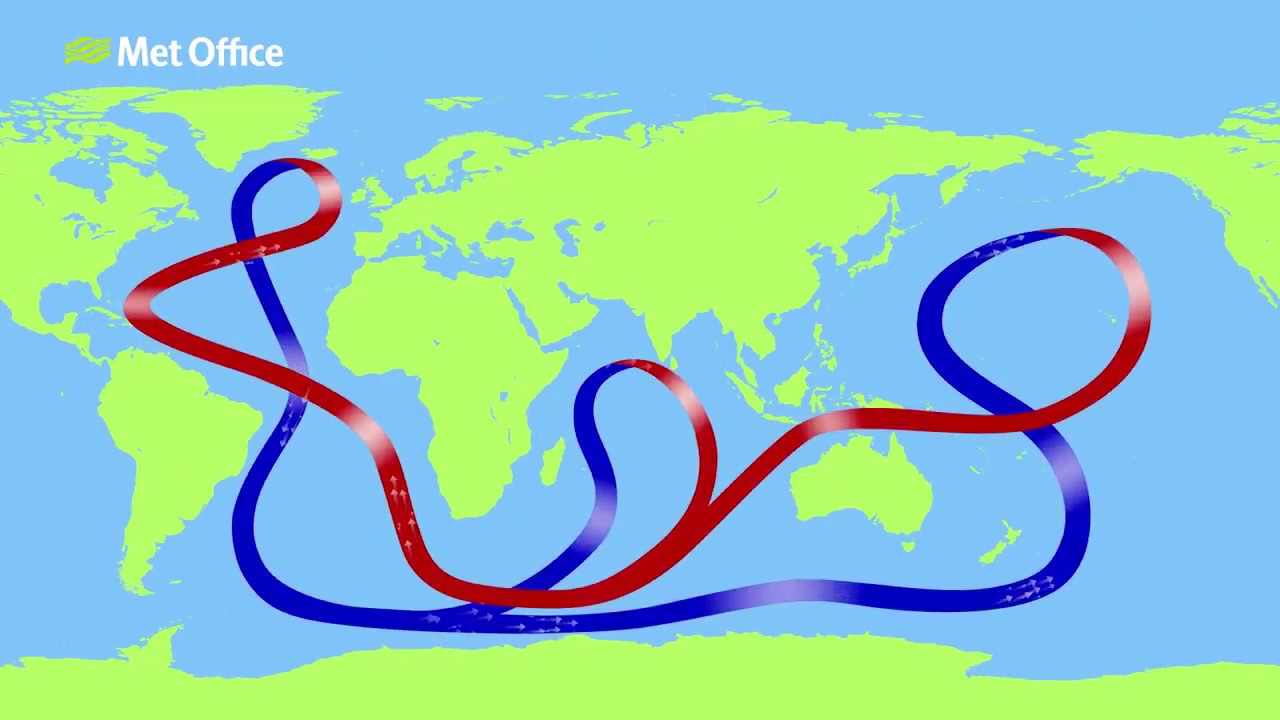
6/8/2021
Anno 1800 is a new type of addon senario for their successful Anno series. This game is based on trying to make a greener and better future by changing what was done in the original industrial revolution. The Team hope that this might educate gamers in a different way about how to much a more sustainable future by embedding these elements in the game. The company has previously produced Anno 2070 which had the idea of fixing some of the damahge done by climate change, but this game tackles the problems at hte root and if successful could make more users aware of what they can do.
Photo Anno 1800
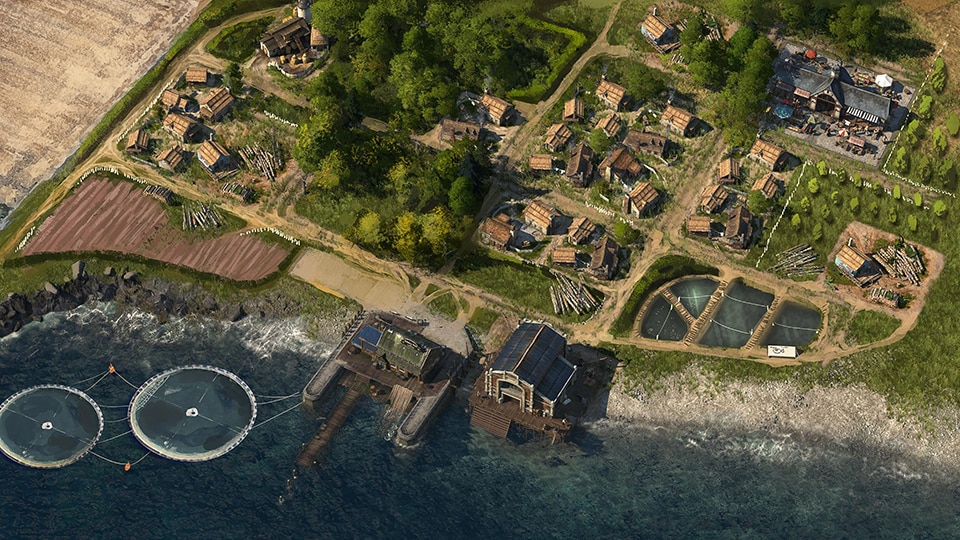
5/8/2021
Moss is known to absorb and hold onto eight times its own mass of water. As the moss grows to takes up large amounts of carbon dioxide from the air and when it dies in a bog it gradually changes to peat locking up the carbon beneath the surface. This is a win win situation, and so it is being grown in Lancashire to stop towns lower down the valley from flooding as the rain water is held onto for longer and released ofver a much longer period of time reducing the swell of the rivers.
Photo Philip M Russell
4/8/2021
Turkey is struggling to put out all the fireds which are burning in half of the provinces. There just are not enough fire fighters to go around and many small villages are having to cope on there own. The fire fighters are having to contend with tinder dry forests and air temperatures around 40C. These temperatures are set to continue for another week. Some of the problem stems from climate change but some also from the lack of preparedness of the country.
Photo Philip M Russell
3/8/2021
Aided by rising temperatures southern Europe is now getting lots of wildfires and many of the authorities cannot cope. The EU is sending firefighting planes to Turkey as the wildfire death toll rises to 8, since it has emerged that Turkey has no firefighting planes. With the temperature rising to 45C in one of the worst heatwaves in recent years, the situation is growing worse, with more fires breaking out and little of no way to fight them. Many of the people who died where trying to save their homes.
Photo Philip M Russell
2/8/2021
The stability in Earth's climate hinges on a very delicate balance between the amount of energy the planet absorbs from the sun and the amount of energy Earth radiates back into space. This equilibrium is moving in favour of the amount of energy the Earth keeps. The scientists concluded that the satellite record of solar radiation and the Radiation of heat from the Earth provided clear evidence of a human-influenced climate system with less than 1% probability that they are wrong..
https://www.nature.com/articles/s41467-021-24544-4
Photo Pixabay

1/8/2021
Countries had until midnight central European time on Friday to submit their plans to UN Climate Change, with emissions cutting targets for 2030. But the world’s largest emitters of Carbon Dioxide, including China, India, Saudi Arabia and South Africa, have done nothing. Some of these counties have suffered badly at the hands of globasl warming, but they seem to be all talk and no do. We only have one planet and we all must do our part now. No country can afford to leave the changes up to others. Sadly we are still looking at countries putting short term economic gain over long term survival.
Photo
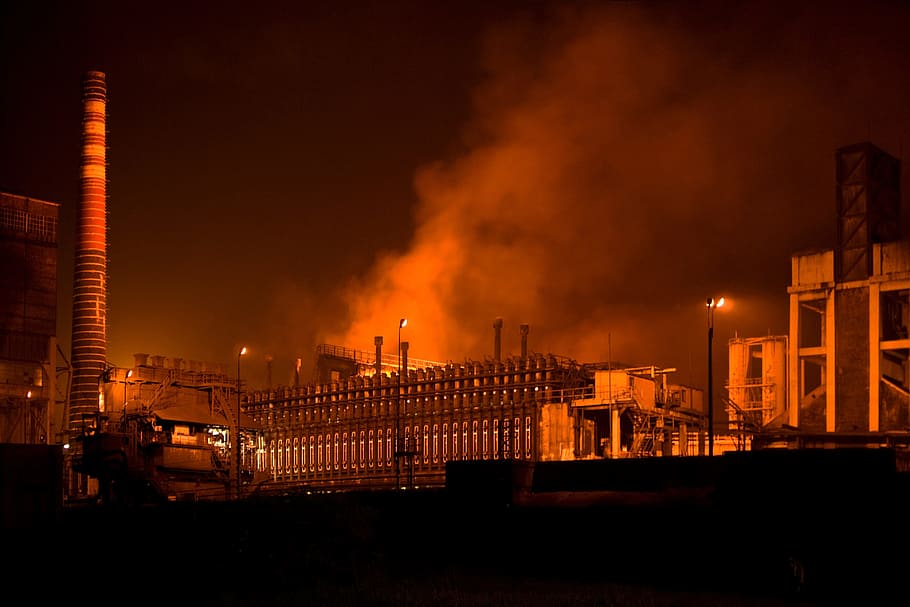
New ways, New technology